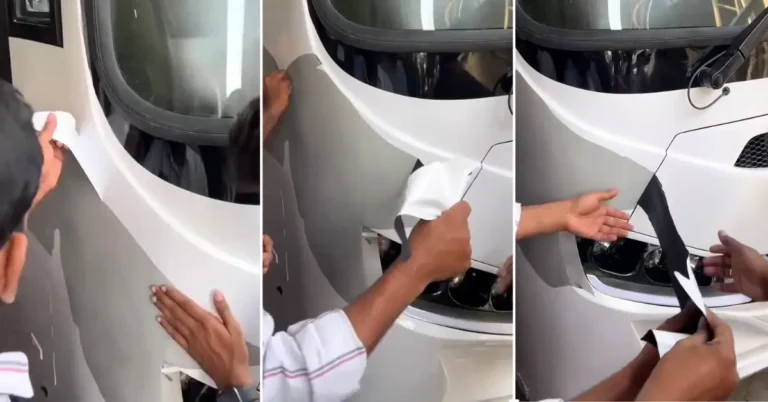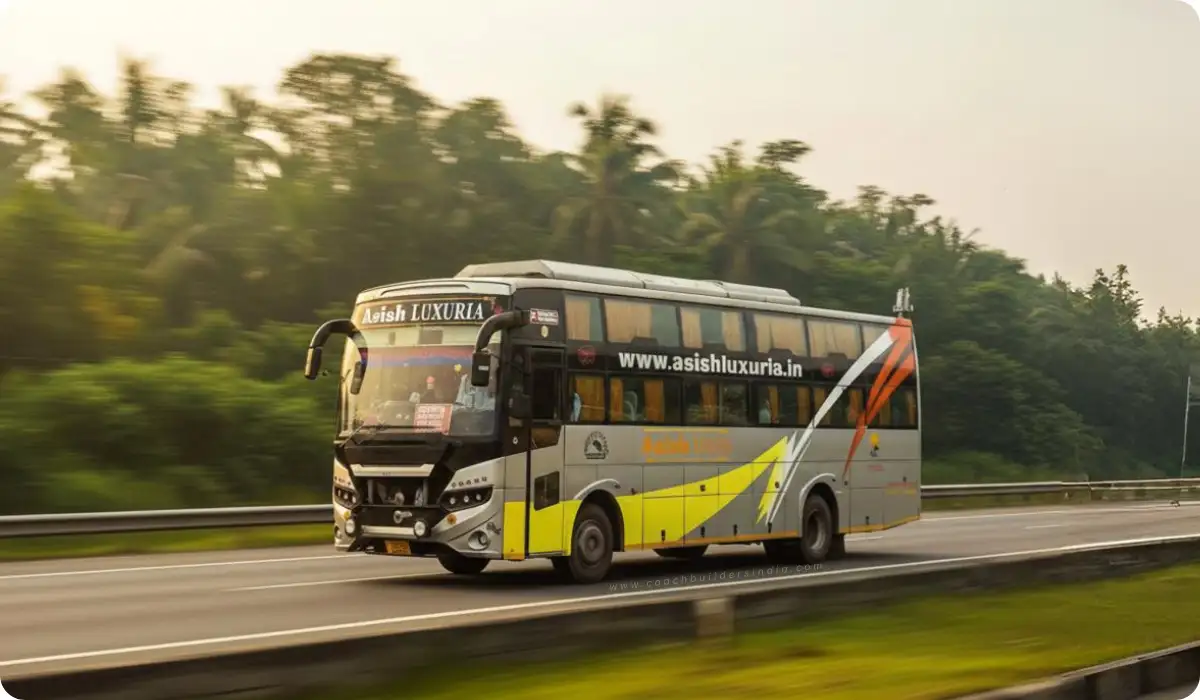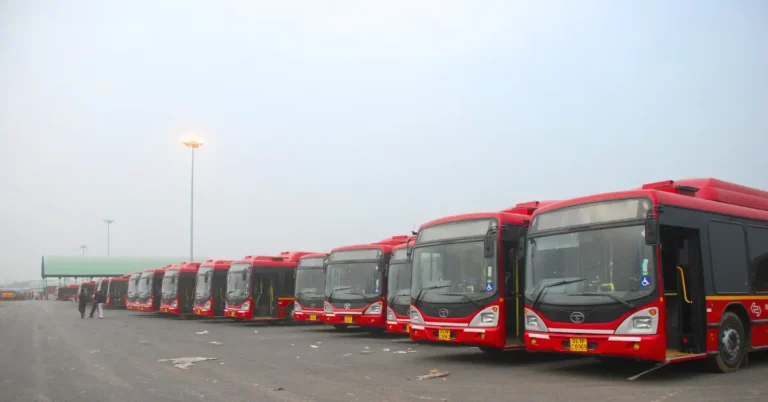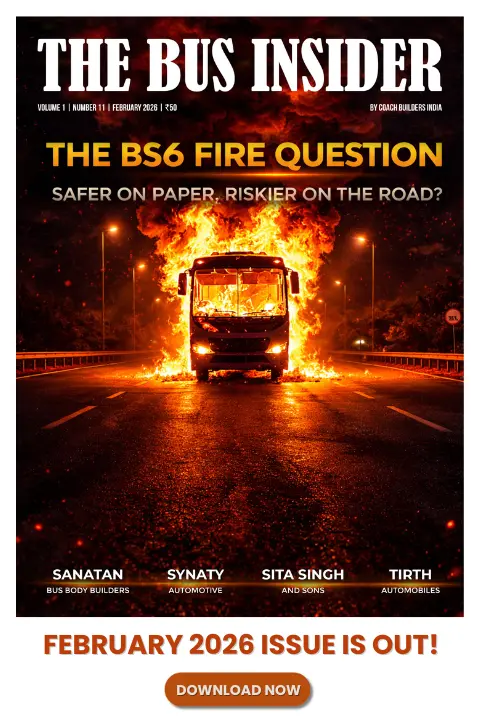Understanding the Draft AITP Rules 2025: Key Concerns
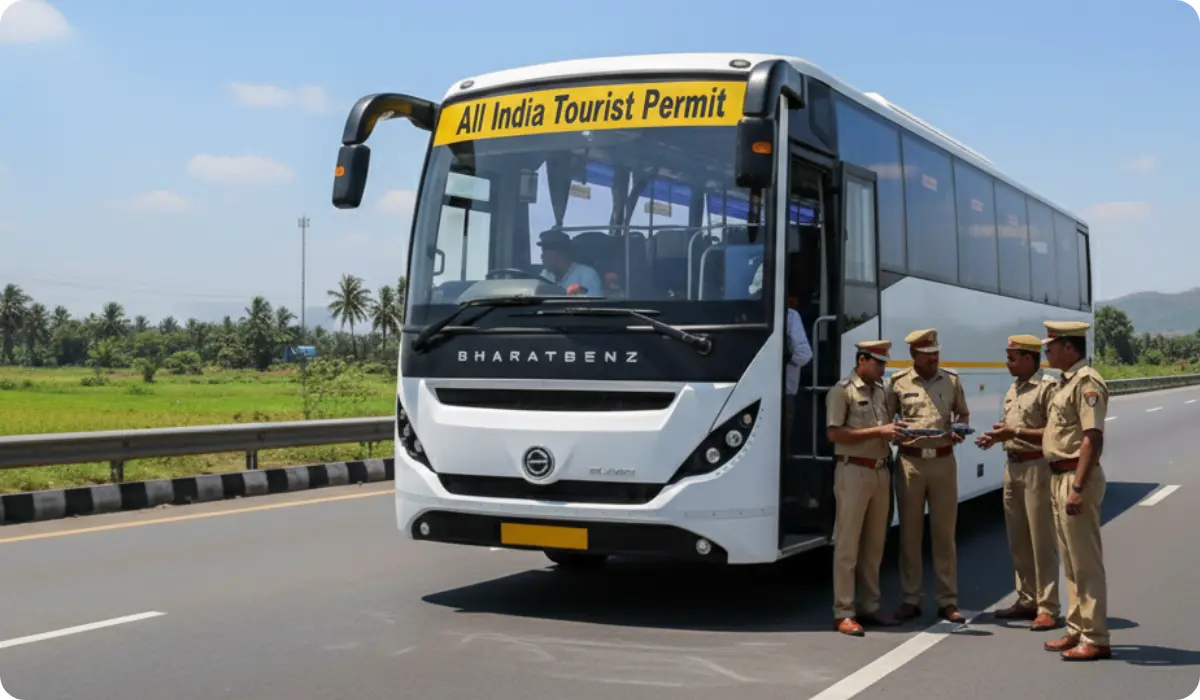
The Ministry of Road Transport and Highways (MoRTH) has released draft amendments to the All India Tourist Permit (AITP) Rules, 2025.
Published on September 12, 2025, under G.S.R. 630(E), the notification invites feedback from stakeholders on the draft AITP rules 2025 within 30 days.
After the 30-day feedback period, the Ministry will review all suggestions and objections from bus operators and associations. Based on this input, the draft rules may be revised before the final version is published, setting the compliance timeline for operators across the country.
These amendments aim to standardize operations, improve compliance, and enhance safety across India’s inter-state tourist vehicle operations.
While the changes are intended to bring clarity and uniformity, several provisions have raised questions among operators regarding feasibility and operational impact.
Diwali Special: How Bus Operators Gear Up for India’s Festive Rush
Key Points of Concern in the Draft AITP Rules 2025
While the draft AITP rules 2025 aim to bring uniformity and improve compliance, several provisions have raised practical concerns among operators. Feedback from bus operators and associations indicates that certain clauses could impact day-to-day operations, long-distance routes, and compliance procedures.
Overall, the industry has highlighted three key areas where clarification or adjustment is needed to make the rules more workable and fair:
1. Compulsory Travel to Home State {Rule 4A(1)(a)}
The New AITP rules 2025 mandate that a vehicle cannot remain outside its home state for more than 45 days. Operators have requested flexibility and that the maximum period outside the home state be extended to 90 days. This would better accommodate long-distance and circular routes without operational disruption.
2. Challan Compliance {Rule 4A(1)(e)}
Vehicles with pending challans must settle them within 30 days to remain compliant. Operators have proposed extending this period to 90 days and ensuring the availability of online challan dispute mechanisms before enforcement, ensuring fairness and due process.
3. Route Details Upload {Rule 10(1A)}
Operators are required to upload the starting point, destination, and route details on the Vahan portal at least 24 hours before departure. Industry stakeholders have expressed concerns about the practicality of this requirement and suggested revising or removing this clause to reduce administrative burden.
Manoj Soni’s Vision to Transform YoloBus into a Smart, Sustainable Mobility Leader
Industry Engagement
Following the release of the draft AITP rules of 2025, bus operators and association representatives from across India have actively reached out to both the central and respective state governments to voice their concerns. Stakeholders highlighted that certain provisions, if implemented as drafted, could create operational challenges, increase administrative burdens, and affect long-distance and interstate services.
Operators have sought clarifications and suggested practical amendments to ensure that the rules achieve their intended goals of safety and standardization without disrupting day-to-day operations.
A large delegation of bus operators from across India, including representatives from Andhra Pradesh, Telangana, Tamil Nadu, Kerala, and several northern states, came together to meet Union Minister Nitin Gadkari to discuss concerns over the AITP draft rules.
The operators highlighted provisions they felt could disrupt long-distance operations, add administrative burdens, or create compliance challenges.
While no representatives from Coach Builders India were present at the meeting, key outcomes were shared with us by the operators who attended:
- The 24-hour advance passenger list requirement for AITP vehicles might not be enforced, in all probability.
- Vehicles already registered in a state will receive temporary relief under the home state travel rule
- Operators are encouraged to submit written feedback regarding challan compliance to enable a considered policy decision.
Another point likely to bring relief to operators is that the government has indicated the home state travel rule may not apply to vehicles registered before the new rules come into effect.
It has to be noted that the points discussed and outcomes shared from the meetings with the Ministry are currently under consideration. These should not be interpreted as finalized rules, as the draft AITP amendments are still under consultation and may be revised before formal notification.
AIS 153 Explained: Here’s What Bus Body Builders Need to Know and Do
Tourist vs Passenger
Industry insiders have highlighted a key area of ambiguity in the draft AITP rules 2025 – the definition of “tourist.”
According to several operators, the term remains loosely defined, making it unclear how vehicles carrying passengers for different purposes should be classified.
Many believe the government needs to clearly differentiate between tourists and regular intercity passengers and consider introducing separate permits for tourist and passenger buses. Without this clarification, operators warn that compliance could remain inconsistent, and enforcement could inadvertently penalize legitimate services.
Stakeholders are urging MoRTH to address this definitional gap in the final rules to ensure clarity, fairness, and operational feasibility across states.
Moving Forward
As of now, the draft AITP rules 2025 remain under consultation, with the government showing openness to consider practical concerns raised by operators.
Industry stakeholders are encouraged to review the draft carefully, provide structured feedback, and coordinate with state associations to ensure that the final rules are balanced, implementable, and supportive of safe, efficient interstate operations.
Catch the latest Bus Industry updates, Exclusive Interviews, Bus News, and International Bus News on Coach Builders India. Download the latest issue of the The Bus Insider magazine for more insights.

